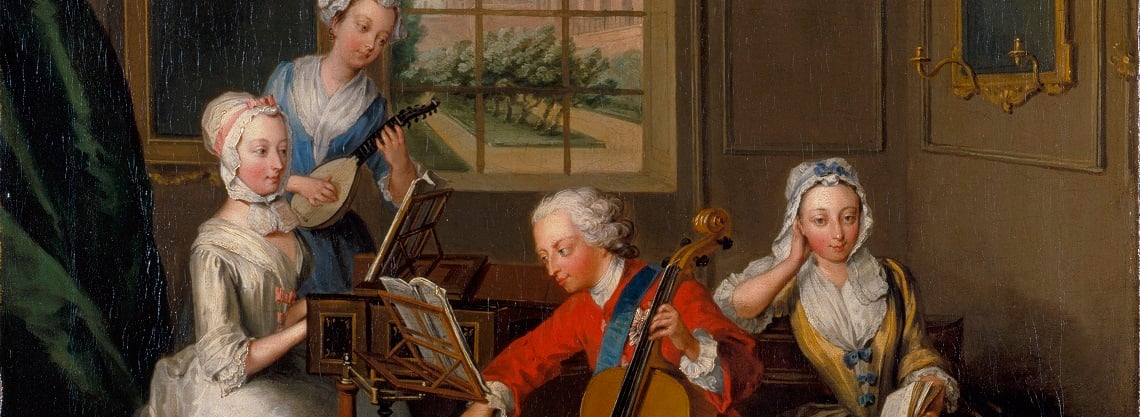
Music in the Royal Collection
Many members of the royal family were talented musicians
Frederick, Prince of Wales (1707–51)
Frederick, Prince of Wales, was the eldest son of George II and Queen Caroline and father to the future George III. He spent much of his life at odds with his own father. He was excluded from both the business of ruling and the public eye and thus used art and music to establish himself amongst the aristocracy and court. Today he is remembered as a great lover and patron of music.
Frederick spent his early years in Germany and during his education there he became proficient at both the cello and the harpsichord.
In 1733 Frederick formed his own opera company called the Opera of the Nobility. Its first principal composer was Nicola Porpora, later the teacher of Haydn. This was a bold move at the time as it was set up to rival the Royal Academy of Music, which was established by Handel and officially patronised by his father, George II. This is not to say, however, that Frederick was antagonistic towards Handel. In fact, Handel composed the wedding anthem for Frederick's marriage to Augusta, Princess of Saxe-Gotha (Sing Unto God/ Anthem for the Wedding of Frederick, Prince of Wales) and also Alfred, which included the aria 'Rule Britannia'.
In London Frederick was a patron of Burkat Shudi, the most famous of harpsichord makers, and bills show that he purchased spinnets (small harpsichords) for Lady Augusta and Prince George. The effect of his encouragement of his children's musical interests is nowhere more apparent than in George III's later patronage of Handel.







